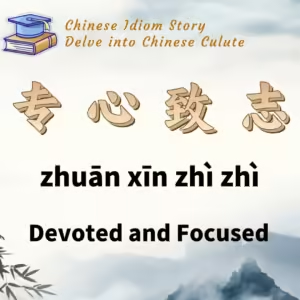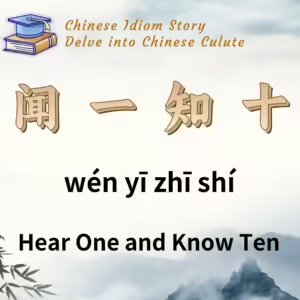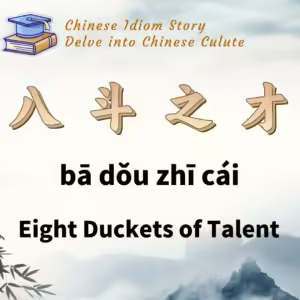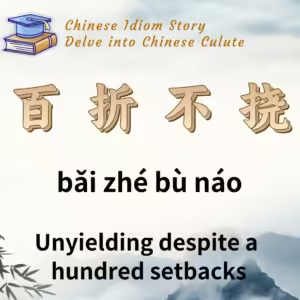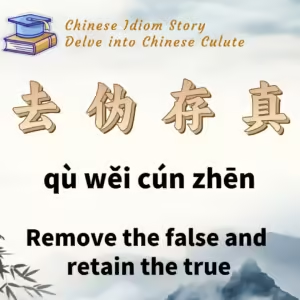
Chinese Idiom: 去伪存真 (Qu Wei Cun Zhen)
English Translation: Remove the false and retain the true
pīn yīn: qù wěi cún zhēn
Idiom Meaning: To discard what is false or deceptive and keep what is genuine or true.
Historical Source: Lüshi Chunqiu (《吕氏春秋》), a philosophical work from the Warring States period.
Idiom Story:
The story behind this idiom involves Confucius and his disciple Yan Hui. During a journey through the states of Chen and Cai, Confucius and his followers encountered severe shortages of food. They were so hungry that at one point, Confucius was bedridden from exhaustion.
Yan Hui, devoted and diligent, managed to obtain a small amount of rice through begging. He cooked it for Confucius, who was deeply appreciative. However, Yan Hui, in an attempt to save the rice, ate some of it even though it had been tainted with some ash from the fire.
When Confucius noticed this, he pretended not to see and, upon receiving the rice, expressed concern about the cleanliness of the food, citing that he had dreamed of his deceased father and wanted to offer a clean meal in his honor. Yan Hui admitted that the rice was not entirely clean, having some ash mixed in, and explained his reasoning for not discarding it.
Confucius, feeling guilty for suspecting his disciple, reflected on the difficulty of truly understanding and trusting people. He realized that even one’s senses and heart are not always reliable. He concluded that discerning the true nature of someone or something is indeed challenging and requires a deeper, more critical approach—removing falsehoods and retaining the genuine essence.
The phrase “去伪存真” thus encapsulates the idea of carefully distinguishing between what is false and what is true, which is essential for accurate understanding and judgment.


